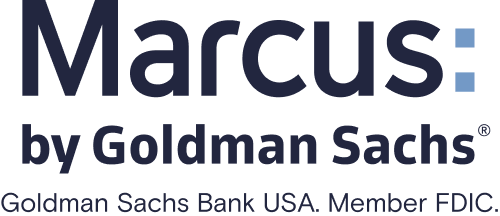8 Best No-Penalty CD Rates for January 2026
+ 1 more
Many or all of the products on this page are from partners who compensate us when you click to or take an action on their website, but this does not influence our evaluations or ratings. Our opinions are our own.
Why trust NerdWallet
Strict editorial guidelines to ensure fairness and accuracy in our coverage to help you choose the financial accounts that work best for you. See our criteria for evaluating banks and credit unions.
Around 100 financial institutions surveyed by our team of experts.
More than 50 data points considered for each bank and credit union to be eligible for our lists. For this CD list, three data points were considered per institution.
No-penalty CD terms tend to be around one year. You generally can withdraw the full balance any time starting the week after the day you fund a CD. In contrast, when you withdraw early from a regular CD, you pay at least several months’ of interest earned.
A no-penalty certificate of deposit is a type of CD that charges no fee for withdrawing money before the term expires. It offers more flexibility than other CDs.
Here’s a look at some of the best no-penalty CD rates.
APY research methodology: Annual percentage yields, meaning the rates of return, are current on this page as of the publication date. Each weekday, we review account rates to make sure we have the most up-to-date APYs.
Best No-Penalty CD Rates
| Bank/institution | NerdWallet rating | Minimum deposit | APY | Learn more |
|---|---|---|---|---|
2.7/5 | $1,000 Member FDIC | APY 3.25% | ||
5.0/5 | $500 Member FDIC | APY 3.90% | ||
5.0/5 | $0 Member FDIC | APY 3.20% | ||
2.4/5 | $1,000 Member FDIC | APY 2.50% | ||
5.0/5 | $500 Member FDIC | APY 3.95% | ||
5.0/5 | $500 Member FDIC | APY 3.95% | ||
3.0/5 | $500 Member FDIC | APY 2.91% | ||
3.0/5 | $500 Member FDIC | APY 4.27% |
- NerdWallet rating2.7/5
Minimum deposit
$1,000
Member FDIC
APY
3.25%
Our Take
Why We Like ItCIT has a 3.25% for its 11-month no-penalty CD and a low opening minimum. Its low CD rating reflects non-competitive rates on popular CD terms.
- NerdWallet rating5.0/5
Minimum deposit
$500
Member FDIC
APY
3.90%
Our Take
Why We Like ItMarcus offers three no-penalty CDs, including a seven-month term, with competitive yields and a low minimum opening deposit of $500.
- NerdWallet rating5.0/5
Minimum deposit
$0
Member FDIC
APY
3.20%
Our Take
Why We Like ItAlly's 11-month no-penalty CD has no minimum balance and a competitive rate.
- NerdWallet rating2.4/5
Minimum deposit
$1,000
Member FDIC
APY
2.50%
Our Take
Why We Like ItThe banking giant Bank of America offers a no-penalty CD, what it calls a “flexible CD,” for a 1-year term. The opening minimum of $1,000 is on the lower end. The rate is based on a San Francisco ZIP code; rates may vary by location. The bank's low CD rating reflects non-competitive rates on popular CD terms.
- NerdWallet rating5.0/5
Minimum deposit
$500
Member FDIC
APY
3.95%
Our Take
Why We Like ItMarcus offers three no-penalty CDs, including a 13-month term, with competitive yields and a low minimum opening deposit of $500.
- NerdWallet rating5.0/5
Minimum deposit
$500
Member FDIC
APY
3.95%
Our Take
Why We Like ItMarcus offers three no-penalty CDs, including an 11-month term, with competitive yields and a low minimum opening deposit of $500.
- NerdWallet rating3.0/5
Minimum deposit
$500
Member FDIC
APY
2.91%
Our Take
Why We Like ItThis Florida-based community bank is available online to U.S. residents nationwide. It has two no-penalty CDs, including a one-year term, and a low opening minimum requirement of $500. However, the bank doesn’t offer standard CDs or terms longer than 25 months online, which is reflected in its CD rating.
- NerdWallet rating3.0/5
Minimum deposit
$500
Member FDIC
APY
4.27%
Our Take
Why We Like ItThis Florida-based community bank is available online to U.S. residents nationwide. It has two no-penalty CDs, including a six-month term, and a low opening minimum requirement of $500. However, the bank doesn’t offer standard CDs or terms longer than 25 months online, which is reflected in its CD rating.
No-penalty CDs: Pros and cons
No-penalty CDs can be a solid option, but see if the positives outweigh the negatives.
Pros
Competitive rates without penalty: CDs typically have higher rates than savings accounts, but most CDs make you commit to keeping your money locked up for a set period. No-penalty CDs give you the flexibility to withdraw early without losing any money.
Opportunity to withdraw fee-free if rates go up: CD rates tend to be fixed once you open a CD, so you can miss out if your financial institution starts offering higher rates. But you don’t have to wait for a no-penalty CD to end its term to put your money into another CD with a higher rate.
» Want to see more CD options? Check out our list of the best CD rates overall
Cons
No partial withdrawals generally: If you withdraw early from a no-penalty CD, you might have to withdraw the entire balance and close the account.
No multiple deposits: This is standard for all CDs, but if you find the flexibility of no-penalty CDs appealing but want to keep contributing savings, your best bet is a high-yield savings account. See the best online options.
What's involved in opening a no-penalty CD?
You'll need to decide on where to open the no-penalty CD, what term to get and whether to open a single or joint account. To see all five steps, check out this guide to opening a CD account.
Best no-penalty CD rates for January 2026
Climate First Bank, 6-month CD: 4.27% APY. $500 minimum to open.
Marcus by Goldman Sachs, 13-month CD: 3.95% APY. $500 minimum to open.
Marcus by Goldman Sachs, 11-month CD: 3.95% APY. $500 minimum to open.
Marcus by Goldman Sachs, 7-month CD: 3.90% APY. $500 minimum to open.
CIT Bank, 11-month CD: 3.25% APY. $1,000 minimum to open.
Ally Bank, 11-month CD: 3.20% APY. No minimum to open.
Climate First Bank, 1 -year CD: 2.91% APY. $500 minimum to open.
Bank of America, 1-year CD: 2.50% APY. 1,000 minimum to open. (Rate is based on a San Francisco ZIP code. Rates may vary by location.)
Last updated on January 6, 2026
Methodology
We featured easy-to-join financial institutions that NerdWallet has vetted and reviewed with the highest rates for no-penalty CDs.
On a monthly basis, we compare rates at 50 financial institutions, pulled from our full list, that we’ve seen to be consistently competitive and available nationwide. On a quarterly basis, we analyze our full list. We exclude brokered CDs, since those accounts work differently from standard bank CDs. Higher rates might be available elsewhere.
Financial institutions and financial service providers researched include the largest U.S. banks based on assets, internet search traffic and other factors; the nation’s largest credit unions, based on assets and membership; and other notable and/or emerging players in the industry. We rated them on criteria including annual percentage yields, minimum balances, fees, digital experience and more.
The full list of financial institutions and providers surveyed are: Affirm, All America Bank, Alliant Credit Union, Ally Bank, Amalgamated Bank, American Express National Bank, Andrews Federal Credit Union, Associated Bank, Axos Bank, Bank of America, Bank5 Connect, Barclays, Bask Bank, BMO, BMO Alto, Boeing Employees Credit Union, Bread Savings®, BrioDirect, Capital One, CFG Bank, Charles Schwab Bank, Chase, Chime, CIBC U.S., CIT Bank, Citibank, Citizens, Citizens Bank, Climate First Bank, ConnectOne Bank, Connexus Credit Union, Consumers Credit Union, Current, Customers Bank, Discover® Bank, E*TRADE, EverBank, Fifth Third Bank, First Foundation, First Internet Bank, First Tech Federal Credit Union, FNBO Direct, Forbright Bank, FourLeaf Federal Credit Union, GO2bank, Golden 1 Credit Union, Hope Credit Union, HSBC Bank, Huntington Bank, Ivy Bank, Jenius Bank, KeyBank, Lake Michigan Credit Union, Laurel Road Bank, LendingClub Bank, Live Oak Bank, M&T Bank, Marcus by Goldman Sachs, My Banking Direct, NASA Federal Credit Union, Navy Federal Credit Union, NBKC, Newtek Bank, OMB Bank, OnePay, Openbank, Pentagon Federal Credit Union, PNC, Poppy Bank, Popular Direct, Quontic Bank, Regions Bank, Revolut, Salem Five Direct, Sallie Mae Bank, Santander Bank, SchoolsFirst Federal Credit Union, Security Service Federal Credit Union, Securityplus Federal Credit Union, Self-Help Credit Union, Service Credit Union, SoFi, State Employees’ Credit Union of North Carolina, Synchrony Bank, TAB Bank, TD Bank, Truist Bank, U.S. Bank, UFB Direct, Upgrade, USAA Bank, Varo, Vio Bank, Wells Fargo, Western Alliance Bank and Zynlo Bank.
NerdWallet's Best No-Penalty CD Rates for January 2026
- CIT Bank 11 Month No-Penalty CD: 3.25% APY
- Marcus by Goldman Sachs 7 Month No-Penalty CD: 3.90% APY
- Ally Bank 11 Month No Penalty CD: 3.20% APY
- Bank of America 12 Month Flexible CD: 2.50% APY
- Marcus by Goldman Sachs 13 Month No-Penalty CD: 3.95% APY
- Marcus by Goldman Sachs 11 Month No-Penalty CD: 3.95% APY
- Climate First Bank 12 Month No-Penalty CD: 2.91% APY
- Climate First Bank 6 Month No-Penalty CD: 4.27% APY
Frequently asked questions
What is a CD?
A CD, or certificate of deposit, is a type of savings account that keeps money locked up for a set fixed time period or term, generally three months to five years. Generally, the longer the term, the higher the rate across a bank’s CD offerings. Here's our list of this month's best CD rates.
How does a no-penalty CD work?
A no-penalty CD is a type of CD that doesn’t charge a penalty for withdrawing money before the term ends. It can be appealing if you want the traditionally higher yield of a CD, compared to regular savings accounts, and think you might need the money sooner than planned. Learn more about other types of CDs.
What’s the catch to no-penalty CDs?
No-penalty CDs offer an attractive balance between higher yields and free access to funds when necessary, but there is an important caveat: Most financial institutions that offer no-penalty CDs don’t allow partial withdrawals. When you need funds early from a no-penalty CD, you must take all of it.
Do CDs have fees?
CDs don’t have monthly fees like checking or savings accounts may have, but a penalty is generally charged if you withdraw before the CD term expires. This early withdrawal penalty tends to be several months’ worth of interest, so it’s usually best to wait to access funds from a CD when the term expires. The exception is no-penalty CDs.
How much does an early withdrawal penalty cost?
An early withdrawal penalty varies by CD term and by provider, but you can expect a range generally from three months’ worth of interest to one year’s worth. If you withdraw too early, you might even have to part with some of the original amount you deposited into the CD. The only CDs that don’t have penalties are no-penalty CDs. See our list of popular financial institutions’ CD early withdrawal penalties.
Are no-penalty CDs risk-free?
For the most part, yes. As with regular CDs, there can be some opportunity cost if you lock in a rate before a financial institution raises rates on newly issued CDs. But as a big plus, you can opt out of a no-penalty CD without cost.
What’s better: a no-penalty CD or a high-yield savings account?
This depends on what you need more: a fixed rate or access to your funds. For a more in-depth comparison, see our article on no-penalty CD vs. savings account.
What terms are available for no-penalty CDs?
Most of the online financial institutions that offer competitive no-penalty CD rates have terms around one year, some a few months shorter, others a few months longer.
Should I put my emergency fund in a CD?
No. CDs are meant for savings you can set aside and leave untouched. Consider a high-yield savings account for money you may need in a pinch. If you have more funds to set aside and want flexibility, a no-penalty CD could be a suitable option.




